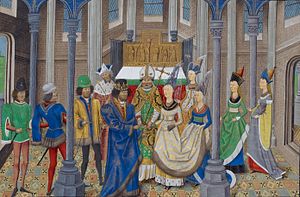The English take the French colonies in Canada during some war that was called by different names in either side of the Atlantic. It is described by Voltaire as two countries shedding blood and emptying their treasures for some worthless frozen tundra in an unknown desert.
The French Kingdom financed the American revolution ant took those colonies away from the English
The French King is assassinated in a revolution financed in mysterious ways that got way out of hand.
The English finance a revolution that would destroy the Spanish monopoly on most of the Americas.
The Dictator of the French provides a perfect opportunity (chaos) for Wold re-alignment.
The English destroy the Spanish Empire in the Americas and an assortment of countries emerge in freedom to trade with recently industrialized England.
Brazil becomes the seat of the Portuguese empire, and conspicuously remains the only Monarchy in South America (apart from Guyana and the Falkland Islands)
because of the longest standing military alliance in history between the English and the Portuguese against the Spanish.
This "special relationship" predates any religious schism and was a way to balance the newly relevant Atlantic countries. Two smaller, miserably poor coastal countries against a new country that was unifying and enlarging in an unprecedented scale: Spain and would continue reconquering and conquering and claiming half the Globe with pious ambitions to all of it.
To this day it is only the Portuguese Colony in the Americas that continued seamlessly (and transitioned peacefully) into a single Federal Republic.
Spanish America is balkanized beyond reason
English America is divided into varying degrees of formal and de facto allegiance to London: Cayman Islands-Canada-Barbados-Jamaica-the US, etc

The French Kingdom financed the American revolution ant took those colonies away from the English
The French King is assassinated in a revolution financed in mysterious ways that got way out of hand.
The English finance a revolution that would destroy the Spanish monopoly on most of the Americas.
The Dictator of the French provides a perfect opportunity (chaos) for Wold re-alignment.
The English destroy the Spanish Empire in the Americas and an assortment of countries emerge in freedom to trade with recently industrialized England.
Brazil becomes the seat of the Portuguese empire, and conspicuously remains the only Monarchy in South America (apart from Guyana and the Falkland Islands)
because of the longest standing military alliance in history between the English and the Portuguese against the Spanish.
This "special relationship" predates any religious schism and was a way to balance the newly relevant Atlantic countries. Two smaller, miserably poor coastal countries against a new country that was unifying and enlarging in an unprecedented scale: Spain and would continue reconquering and conquering and claiming half the Globe with pious ambitions to all of it.
To this day it is only the Portuguese Colony in the Americas that continued seamlessly (and transitioned peacefully) into a single Federal Republic.
Spanish America is balkanized beyond reason
English America is divided into varying degrees of formal and de facto allegiance to London: Cayman Islands-Canada-Barbados-Jamaica-the US, etc



